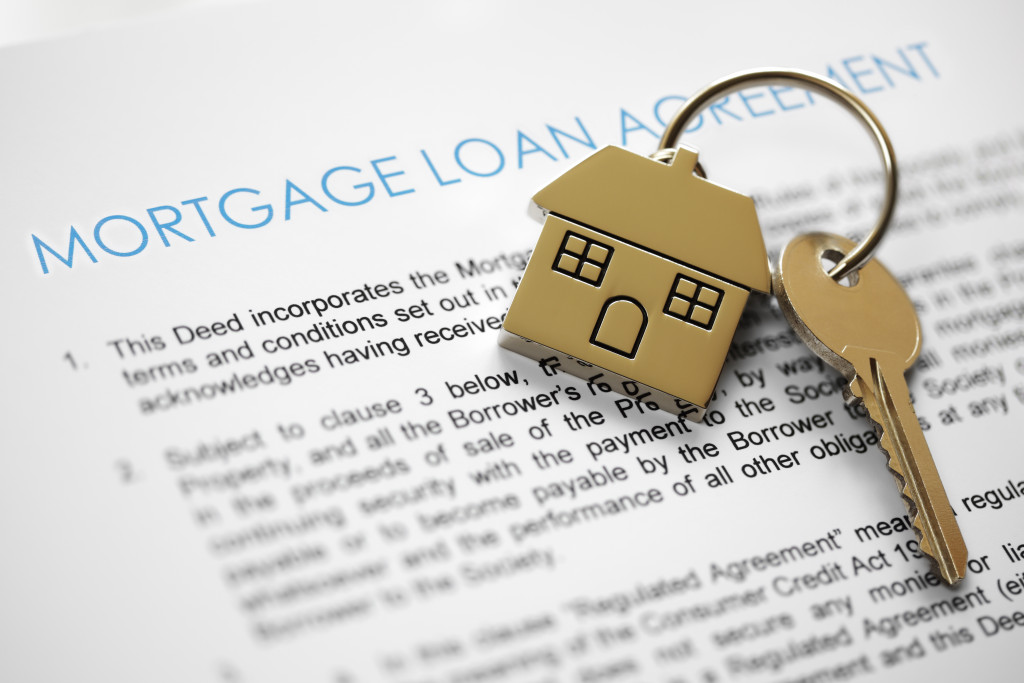- Understand your credit score and take steps to ensure accuracy before applying for a home mortgage.
- Determine a budget that allows you to responsibly manage additional debt from the loan.
- Shop around for the best mortgage option and look into government programs if applicable.
- Gather necessary documents prior to submitting an application.
- Consider a down payment to secure better loan terms.
When it comes to preparing for a home mortgage, there are several things you need to know before applying. Taking the time to learn about the process and understanding your financial situation can help ensure that you’re in a good position regarding getting approved for the loan. This article will go over some key elements to consider when thinking about taking on a home mortgage.
1. Understand Your Credit Score
Your credit score is one of the most critical factors in determining whether you get approved for a home mortgage. Before applying, review your credit report and ensure that all the information is accurate. If there are any inaccuracies, dispute them as soon as possible, so your credit score is not adversely affected. Additionally, work to pay off any outstanding debts and ensure a solid payment history.
2. Determine Your Budget
Understanding how much you can realistically afford when taking on a home mortgage is essential. Before applying for the loan, review your current expenses and ensure that you are in a comfortable financial position to take on additional debt. Also, consider other costs associated with buying a home, such as property taxes, insurance, utilities, and maintenance costs. These should all be considered when determining how much of a loan you can manage responsibly.
3. Shop Around for Mortgage Options

Once you’ve got a good idea of your budget and credit score, it’s time to look for the best mortgage options. You’ll want to research different lenders to understand their terms, interest rates, and other conditions. Remember that it is possible to negotiate with a lender to find the best deal, so don’t be afraid to ask questions and bargain if you can.
Here are some mortgage options you can choose from:
Fixed-rate Mortgage
This is a popular choice as it offers more stability. The interest rate remains the same throughout the loan term, and you’ll make predictable payments unaffected by market changes.
Adjustable-rate Mortgage (ARM)
With this option, your interest rate can change over time depending on market conditions. This means your payments could increase or decrease depending on what happens in the market. If you are looking for a lower initial payment, an ARM can be a great option since it typically offers lower interest rates than traditional fixed-rate mortgages.
Balloon Mortgage
This type of loan offers lower monthly payments but requires a large lump sum payment at the end of the term. It’s best if you want a specific plan to pay off this final amount. A balloon mortgage is also ideal if you anticipate a large amount of income at a given time, such as selling a property or other asset.
Government Mortgage
Several government programs offer special mortgage options for first-time homebuyers, veterans, and low-income people. Be sure to check if you qualify for any of these programs to find the best deal. USDA loans are one example of government-backed programs. Utilizing a USDA mortgage is right for you if you want to purchase a home in rural areas and you’re looking for favorable terms such as no down payment or low-interest rates.
4. Prepare Your Documentation

When applying for a home mortgage loan, there are certain documents that you will need to provide such as pay stubs, tax returns, bank statements, proof of employment, and income verification letters. Make sure that all of these documents are up-to-date and accurate before submitting them with your application. This will help speed up the process and make it easier for the lender to approve your loan.
5. Consider Your Down Payment
Your down payment is one of the essential elements when getting approved for a home mortgage. Most lenders will require a minimum down payment to secure the loan, so make sure you have enough saved up before applying. Additionally, larger down payments can help you get more favorable terms on your loan, such as lower interest rates.
In Closing
Preparing for a home mortgage doesn’t have to be an overwhelming experience as long as you take the time to understand your financial situation and plan ahead. By researching different lenders and understanding what documents are needed with your application, you’ll be in a good position to secure the loan. Ultimately, planning and preparing will make the process much easier and give you a better chance at getting approved for the home mortgage that is right for you.

